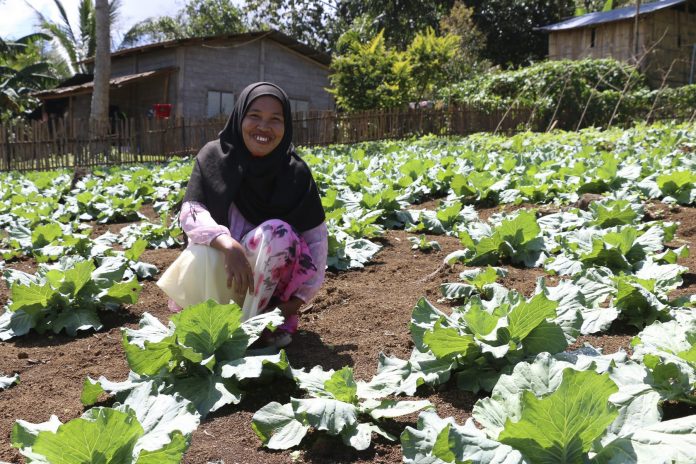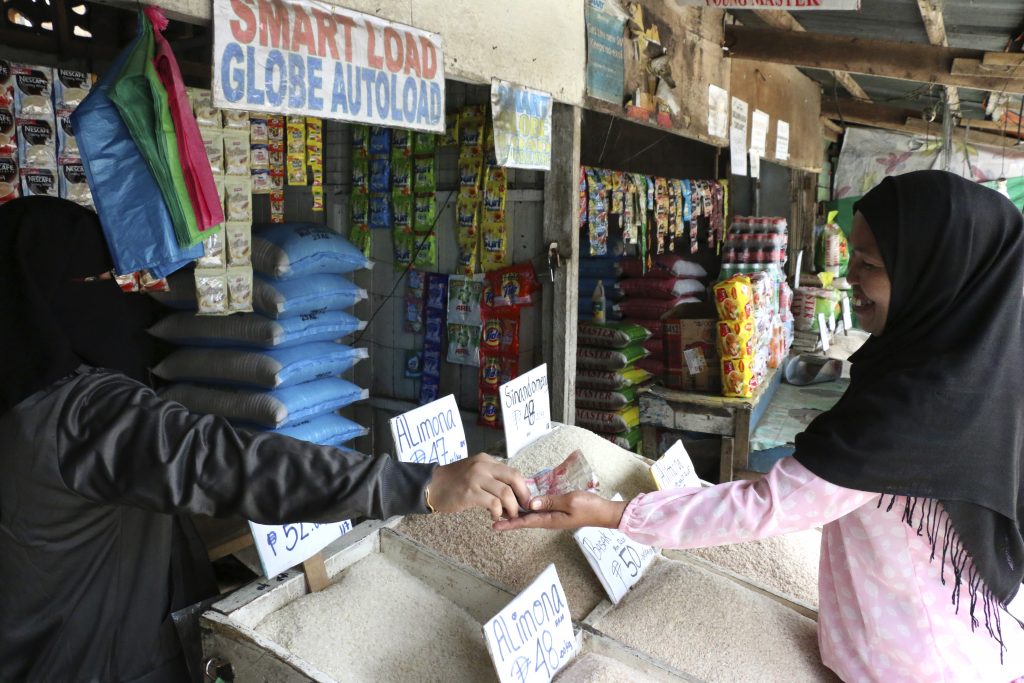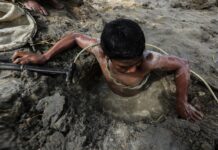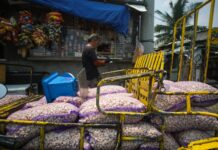
Philippines’ women farmers benefit from Cash Transfer aid
Text & Photos Faizza Tanggol
Under the heat of the sun, Analyn inspects the cabbage she has planted a few months ago together with 39 other women in their communal garden. They live in a village called Paling in Piagapo, located in Lanao del Sur in Mindanao.
Aside from cabbage, the women farmers have planted other high-value vegetables such as pumpkin, eggplant and bitter gourd in their small 20 square metre garden, as part of the United Nations World Food Programme’s (WFP) cash-based project to assist communities in rebuilding their lives after the decades-long conflict.
Building a Livelihood
Conflict and displacement often lead to food and nutrition insecurity of vulnerable populations. Once the conflict is over, families sometimes find it difficult to get back on their feet. For Analyn and her husband, who works as a tricycle driver, their income is not enough to feed their family of eight children.
WFP works with the national and local government in the Philippines to bring about social protection programmes, and one of it is cash-based transfers. In Piagapo, the Department of Agriculture and Fisheries-Autonomous Region in Muslim Mindanao (DAF-ARMM) provided complimentary vegetable seedlings, while the local government supported the training to farmers.
“We learned about this project from our village chief,” shares Analyn. “So we formed a group made up of forty women and then we prepared the land and planted the vegetables. The actual work was easy especially if you have companions with whom you can talk to. It was fun because we could chit-chat while planting the vegetables.”

How Does It Work?
After doing their work at the vegetable garden, participants will receive electronic prepaid cards (e-cards) with cash entitlements depending on their days of work. Analyn and her group worked for 30 days, so each woman was entitled to around PHP6,000 or US$128. “During the first payout, I withdrew my money at the ATM machine,” Analyn explains. “Even though they had already thought us how to use it, I was nervous because it was my first time withdrawing money from the ATM. I didn’t know which buttons to press and I had to ask for help from the bank’s security guard! For the second payout, I got my money from the local remittance centre.”
WFP Philippines is increasingly using cash transfers as a method for improving food security, especially in areas where markets are accessible. Women such as Analyn play a crucial role in ensuring there is food on the table in the household. With the entitlement she received, Analyn was able to buy rice, fish, sugar and soap for her family. She has also set aside some money for emergency needs. “I do prefer cash because I can buy food as well as other essentials. Everything I need, I can buy with cash. I can also provide allowance for my children when they go to school,” Analyn shares.
As she finishes the careful inspection of the vegetables in the communal garden, Analyn expresses thanks to her local government and WFP for the assistance provided. “We will make sure that we sustain this garden. We will not only get money from it, but we can also get vegetables which our families can eat,” she says.
For more stories and photos, check out Asian Geographic Issue 118.










